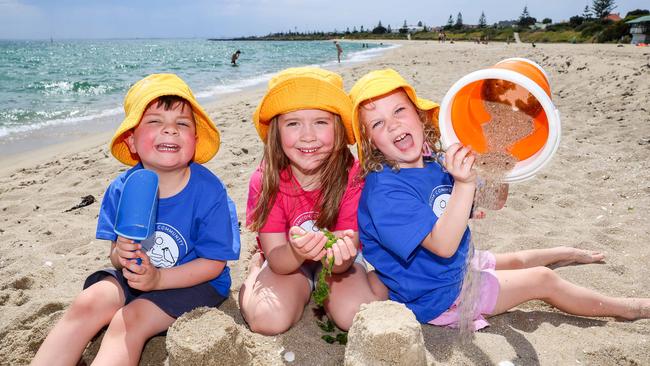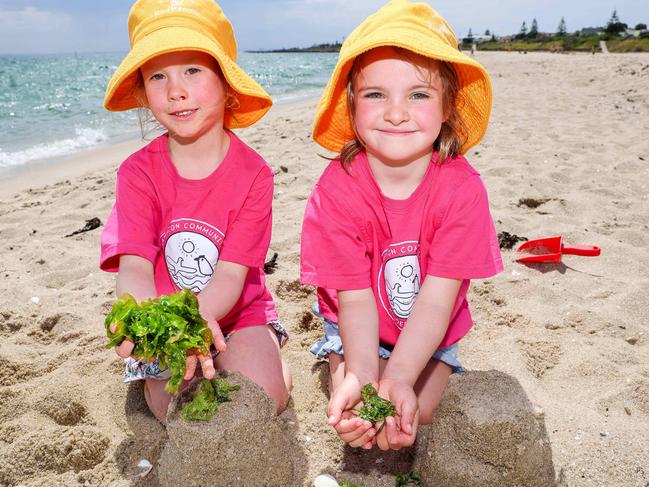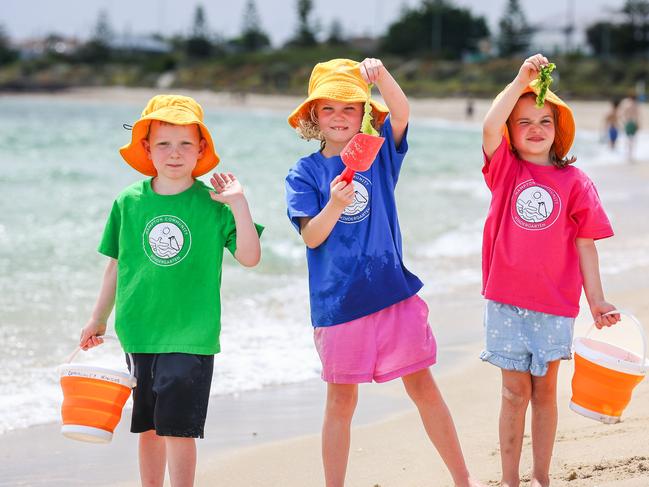A day at the beach can have great benefits on kids’ science and maths knowledge, research finds
Kids who play at the beach have been shown to have greater science and maths knowledge than those confined to a classroom.

Victoria
Don't miss out on the headlines from Victoria. Followed categories will be added to My News.
Parents are encouraged to take their children to the beach regularly this summer, after new research found kids who play in coastal environments acquired greater science and maths knowledge.
A new study by Deakin University found four and five-year-olds who attended beach kinder had better opportunities to learn physics, biology and chemistry than those who stayed inside a classroom.
Similar to bush kinder, beach kinder is hosted in a coastal setting and provides kids with the opportunity to learn in the sand.
Beach kinder programs are growing in popularity in Victoria’s coastal towns and typically involves children being taken to the beach for a few hours each week.

Deakin’s Centre for Research and Educational Impact research fellow Dr Chris Speldewinde, who has previously co-authored studies on bush kinder, followed children’s beach kinder journeys to explore the learning benefits of coastal environments.
“The beach is not like a classroom where you’re in the same four walls each day … the weather is different, the tide will wash in all sorts of shells,” he said.
“It’s literally a classroom space on the beach that is different every single day and the learning opportunities are different.”
Dr Speldewinde said one of the benefits of beach kinder was it allowed children to experience STEM – science, technology, engineering and maths – in an integrated way by solely relying on the resources on the beach to play.
“They will turn up to a beach kinder session and there might be a dead fish or cuttle fish on the sand and all of a sudden that’s a completely different learning opportunity that an educator can talk about that wasn’t there last week,” he said.
“Another example is if kids build a tunnel in the sand: they would have to think about the distance of the tunnel which is maths, whether the tunnel will collapse which is physics and whether the sand is wet enough which is chemistry.”
Hampton Community Kindergarten in Melbourne’s southeast is one coastal preschool offering beach kinder to its four and five-year-old students.
The program, which receives funding from Community Bank Sandringham, operates in terms two and three, with educators taking children to the beach via the local bus.

Director Emily Millward said the children enjoyed running in the open space and loved walking along the beach to see what might wash up on the shore.
“Learning happens in many different environments and children can get the same if not more learning benefits by having a classroom out in nature,” she said.
“It gives them real life experiences with the local environment, indigenous plants, the weather and the seasons.”
Ms Millward said educators have also noticed childrens’ confidence in trying new things increase and have become more worldly since starting beach kinder.
“It gives them experience on how to live, be safe and how to care for coastal areas,” she said.
Dr Speldewinde encouraged early childhood educators and parents to “dip their toes into the water this summer” by turning their next trip to the beach into a learning experience.
“Going to the beach is a great low-cost way for families to spend quality time together and can act as a calming and enriching place to learn about the environment for children with behavioural, mental, emotional and social issues,” he said.
More Coverage
Originally published as A day at the beach can have great benefits on kids’ science and maths knowledge, research finds





